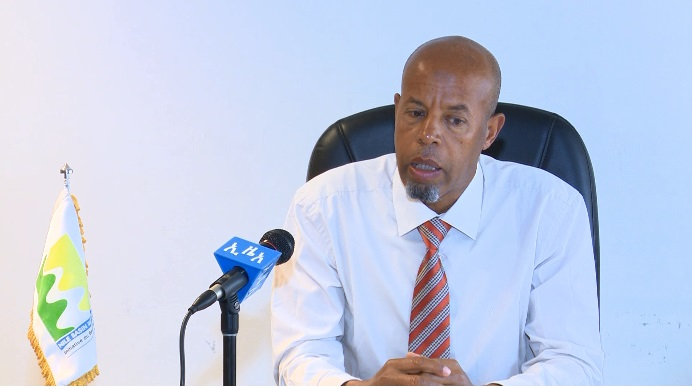Proposal on GERD “is aimed at fulfilling Egypt’s interest only”: ENTRO - ENA English
Proposal on GERD “is aimed at fulfilling Egypt’s interest only”: ENTRO

Addis Ababa September 26/2019 The proposal presented by Egypt over filling and how to operate the Grand Ethiopian Renaissance Dam is aimed at “fulfilling Egypt's interest only,” official of the Eastern Nile Technical Regional Office (ENTRO) said.
Egypt tabled a new proposal for discussion about filling of the dam during the meeting of water ministers of Ethiopia, Sudan and Egypt held this month in Cairo, following the establishment of a Transition Government in Sudan.
Egypt proposed that the dam should be filled in seven years and the filling could progress if the level of the water at Aswan Dam reaches 165 meter above the ground. It also proposed that Ethiopia should release 40 billion cubic meter water annually.
Ethiopia immediately rejected the proposal saying it disrespects its sovereignty and the right to develop its resources.
In an Exclusive Interview with ENA, ENTRO Executive Director Fekahmed Negash said that Egypt's proposal violated the procedure that should be pursued. It should be Ethiopia that should come up with a proposal about the filling.
“Egypt is acting as the owner of the dam and coming up with the proposal asking Ethiopia to comment on that. This is not logical actually,” he said.
“The funny part of this proposal is that Egypt coming up with its own proposal, but it is Ethiopia's dam. The logical order is that Ethiopia will come with the filling plan and Egypt can comment on that, Egypt can indicate concern on Ethiopia’s proposal and can request improvement on Ethiopia’s proposal,” he said.
According to Fekahmed, Egypt's proposal will "significantly" affect Ethiopia.
“A 40 billion cubic meters [release] will definitely have significant implication on the time of filling, economic and moral as well as implication related to sovereignty of the country,” he said.
He said if Ethiopia accepts to release 40 billion cubic meters and maintaining the level of the Aswan at 165m above the ground, “there is a probability that the dam will never fill.”
Noting the flow of the Nile fluctuates, ranging from 29 billion cubic meters to 74 billion cubic meters, it is difficult to release that much water and maintain the level of the water at Aswan, Fekahmed argued.
As the filling period is extended, Ethiopia would lose the economic and social benefit it should get from the dam and its right to utilize resources, he added.
“Any country has a sovereign right on the utilization of its natural resources including water. So, Ethiopia has sovereign right to utilize the water that exists within its territory,” Fekahmed said noting Egypt'a proposal violates this principle.
“Any country that is within trans-boundary river region has sovereign right of utilizing the water resources in its owned boundary, but with obligation of not causing significant harm on other users, since it is related to the livelihood and development of other nations as well,” he noted.
Noting that trans-boundary resources such as the Nile need collaboration among countries, Fekahmed urged the need for the three riparian countries to work in a spirit of cooperation for mutual benefit.
“Ethiopia, Sudan and Egypt can really make maximum use of the trans-boundary river and create an atmosphere of peace and security within the region. They should come back on cooperation and negotiation and finalize the agreement and start implementation. From this, all the three countries can benefit and if this is not possible countries may not be able to gain anything,” he said.
Ethiopia started the dam on River Nile in April 2011, with the aim of generating electricity to meet local demands and earn foreign currency.
The dam which stood at 68.3 percent is expected to generate 750 MW power next year.
The dam that generates 6450 MW power upon completion will be the largest hydroelectric dam in the continent 7th largest in the world.